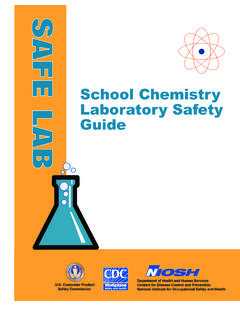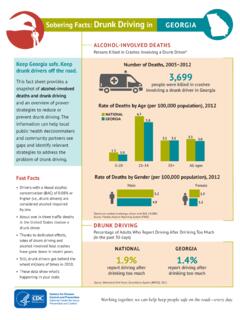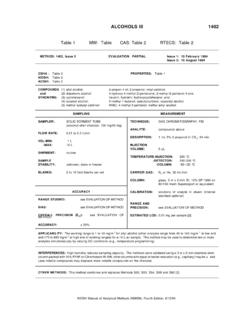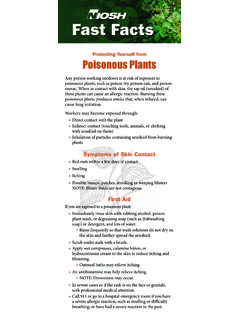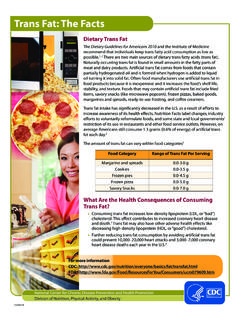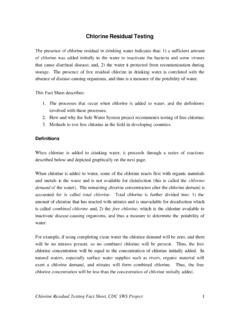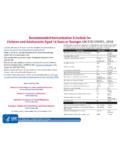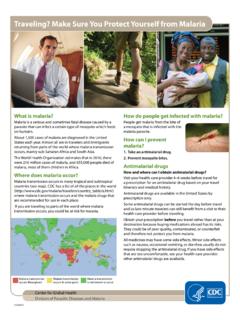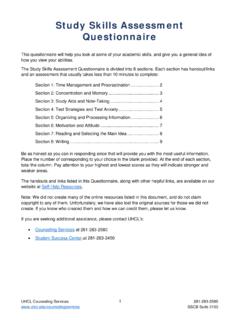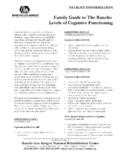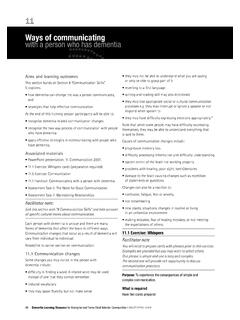Transcription of Mild Traumatic Brain Injury and Concussion: Information ...
1 PATIENT TAKE-HOME INSTRUCTIONSH ospital: Information FOR ADULTSYou have been examined for a head Injury and possible concussion. You did not have a CT scan of your Brain because it was determined that it was not needed at this time. You had a CT scan of your Brain and no Injury was is safe for you to go home, but you may still have had an Injury to your Brain or may experience symptoms. We suggest that you limit certain activities. Take time off from work or school for days or until you and your health care professional think you are able to return to your usual instructions from your health care professional:When should I return to the hospital emergency department?
2 Sometimes serious problems develop after a head Injury . Return immediately to the emergency department if you experience any of the following symptoms: Repeated vomiting Headache that gets worse and does not go away Loss of consciousness or unable to stay awake during times you would normally be awake Getting more confused, restless, or agitated Convulsions or seizures Difficulty walking or difficulty with balance Weakness or numbness Difficulty with your visionMost of all, if you have any symptom that concerns you, your family members, or friends, don t delay, see a doctor right away.
3 Q&A. Some questions and answers about Brain injuriesQ. What is a concussion?A. A concussion is a type of Traumatic Brain Injury (TBI). It is caused by a bump, blow, or jolt to the head or body that causes the head and Brain to move quickly back and forth. Some of the ways you can get a concussion are when you hit your head during a fall, car crash, or sports Injury . Health care professionals sometime refer to concussions as mild Brain injuries because they are usually not life-threatening. Even so, their effects can be What should I expect once I'm home from the hospital?
4 A. Most people with a concussion recover quickly and fully. During recovery, it is important to know that many people have a range of symptoms. Some symptoms may appear right away, while others may not be noticed for hours or even days after the Injury . You may not realize you have problems until you try to do your usual activities again. Please turn over. Below is a list of some of the symptoms you may have: Thinking/ RememberingDifficulty thinking clearlyFeeling slowed downDifficulty concentratingDifficulty remembering new informationPhysicalHeadacheNausea or vomiting (early on)
5 Sensitivity to noise or lightFeeling tired, having no energyFuzzy or blurry visionDizzinessBalance problemsEmotional/ MoodIrritabilitySadnessMore emotionalNervousness or anxietySleepSleeping more than usualSleeping less than usualTrouble falling asleepThese postconcussive symptoms can be part of the normal healing process and are generally not signs of permanent damage or serious health problems. Most symptoms go away over time without any is easy to become upset or afraid if you don t know what to expect or if you are having problems. Keep talking with your doctor and others about how you are feeling.
6 Tell your health care professional if you do not think you are getting better. Q. What can I do to feel better?A. Getting plenty of rest and sleep helps the Brain to heal. Do not try to do too much too fast. As you start to feel better, you can slowly and gradually return to your usual routine. Here are some other tips to help you get better: Avoid activities that are physically demanding ( , sports, heavy housecleaning, exercising) or require a lot of thinking or concentration ( , working on the computer, playing video games). Ignoring your symptoms and toughing it out often makes symptoms worse.
7 Ask your health care professional when you can safely drive a car, ride a bike, or operate heavy equipment. Do not drink What if I don't feel better after a week?A. If you do not feel back to normal within one week, see a health care professional who has experience treating Brain Should I tell my work about my Injury ?A. If your Injury was work-related, make sure you report it right away to your employer and your workers compensation When can I return to sports and recreational activities?A. Do not return to sports and recreational activities before talking to your health care professional.
8 A repeat concussion that occurs before the Brain has fully healed can be very dangerous and may slow your recovery or increase the chance for long-term problems. Q. How can I avoid a concussion in the future?A. There are many ways to minimize the risk of a concussion and other injuries: Wear a seat belt and use a safety seat for children. Wear a helmet that fits properly when biking, riding a motorcycle, skating, skiing, horseback riding, or playing contact sports. Prevent falls in the home by: Using grab bars in the bathroom and handrails by stairs.
9 Placing non-slip mats in the bathtub and on floors. Removing trip hazards in the house. Improving lighting. Installing safety gates by stairs and safety guards by windows to protect young children in your more Information about concussion, please visit fact sheet is part of the Centers for Disease Control and Prevention s (CDC) Heads Up series of publications and is based on the 2008 Clinical Policy: Neuroimaging and Decisionmaking in Adult Mild Traumatic Brain Injury in the Acute Setting, jointly produced by CDC and ACEP.
